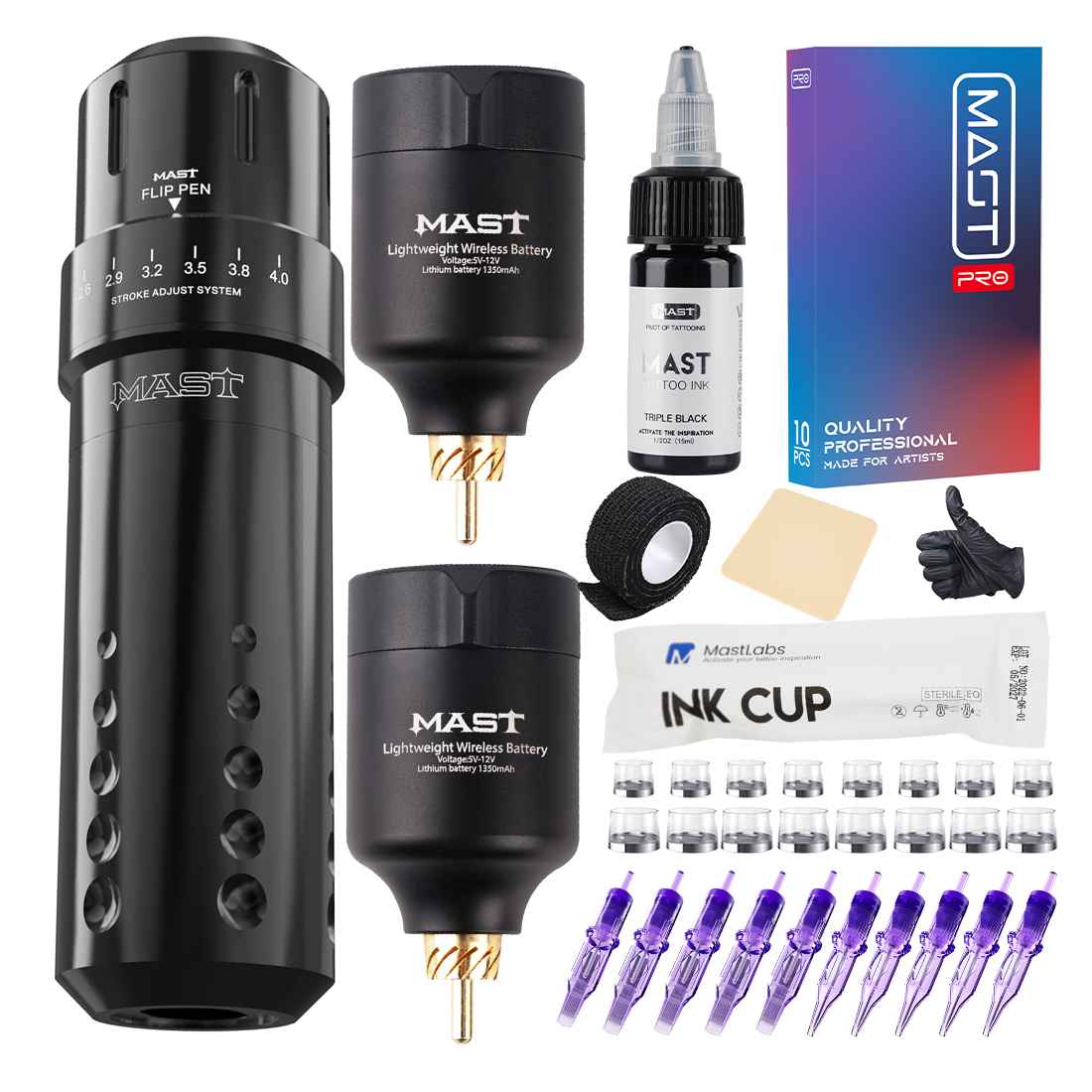Here’s the question, “Can accountants have tattoos?” And here’s the straight up answer, yes accountants can have tattoos. Even with this, you should know that accountants with tattoos confront deeply ingrained professional stereotypes. While public acceptance rises, conservatism and client perceptions persist.
Most firms now allow body art within policy limits. Proving skills and judgment remains priority. With care around presentation, financial contexts and client sensitivities, today’s inked CPAs succeed by focusing ability over antiquated expectations.
Let’s explore some more on these to find out the kind of tattoos an accountant can wear, clients’ perception on these tattoos and the policies affecting accountants with tattoos.
Overview of Accountant Tattoos
– No laws prohibit licensed accountants from having visible tattoos or piercings while practicing.
– Major accounting organizations do not dictate personal appearance standards. Firms craft own policies.
– Heavily tattooed practitioners confront biases seeming unprofessional, risky or lacking clients’ best fiscal interests.
– Facial, neck and hand tattoos face the strongest stigma and often prohibitions. Offensive themes also elicit wariness.
– Discretion advised on size and content for client meetings and interviews. Conservative tailored cover-ups expected.
– Ultimately most respect skill, with proven performance and communication overcoming outdated judgment.
With poise and patience, today’s inked accountants thrive by showcasing competency, ethics and sound judgment.
Also Read: Can a Social Worker Have Tattoos? [Ink and Advocacy]
Are Tattoos Allowed for Accounting Students?
– No academic programs forbid students from having visible tattoos or piercings on campus.
– Occasionally professors demonstrate personal prejudices against tattooed pupils during group work, conferences and professional panels.
– Strong grades, leadership and communication eclipse any stigma. Focus on skill development.
– More progressive urban programs embrace student self-expression aligned with local cultures.
– Avoid racier themes that professors could perceive as undermining fiscal judgment.
Tattoos present no inherent obstacles to pursuing an accounting education. Proving one’s capabilities remains priority.
Licensure Policies for Tattooed Accountants
Importantly, tattoos should not prevent accountants from securing needed credentials:
– No state accountancy boards prohibit visible tattoos or piercings among licensed, practicing CPAs.
– The American Institute of Certified Public Accountants Code of Conduct does not dictate member appearance.
– The National Association of State Boards of Accountancy has no enforceable restrictions on personal presentation for licensure.
– Tattoos are irrelevant to completing required public accounting hours for certification.
– Body art does not jeopardize sitting for the Uniform CPA Exam.
Having tattoos in no way precludes the licenses necessary for professional accounting careers.
Firm Policies on Accountant Tattoos
While licensure faces no barriers, individual firm cultures vary:
– Most corporate firms allow tattoos covered by standard business attire. Highly visible pieces raise concerns.
– Client-facing practitioners, especially at blue blood firms working with major enterprises and high net-worth individuals, confront conservative restrictions.
– More casual tech-centric companies and start-up environments often permit discretionary body art.
– Heavily tattooed hands, fingers, necks and faces still elicit pushback across most firms.
– Presentation is more formal for client meetings and interviews than everyday office work. Coverings expected accordingly.
Carefully assess workplace culture fit if expressing yourself through prominent tattoos. Some environments impose limitations based on traditional client expectations. However, blanket bans grow increasingly rare as younger generations reshape norms.
Also Read: Can a Pilot Have Tattoos? Exploring Ink in the Cockpit
Client Perceptions of Tattooed Accountants
Comfort level with tattooed financial professionals splits along generational, cultural and political lines:
– Elderly, deeply religious and affluent investors tend to demonstrate the strongest bias against accountants with prominent tattoos.
– Most middle-aged clients are ambivalent provided accountants exercise discretion and cover more extreme modifications during consultations.
– Among younger progressive clients, tattoos raise little concern and may even increase perceived relatability.
– Overall, competency demonstrated through sound analysis and communication carries more influence than appearance biases.
With utmost professionalism, financial counseling skills trump outdated visual judgments. However, some demographics remain wary of heavily inked practitioners. Tread thoughtfully.
Best Practices for Accountants with Tattoos
To excel in finance as a visibly tattooed professional:
– Keep tattoo themes tasteful and devoid of potentially offensive or alarming imagery. Avoid known triggers.
– Prioritize discreet placement on upper arms, shoulders, backs and torsos. Sleeves allow easy covering when beneficial.
– For pitches and client meetings, cover bold tattoos and piercings with formal business attire. Take a conservative initial approach.
– Keep presentation focused on fiscal credentials and portfolio, not personal style. Redirect attention as needed.
– Emphasize professionalism through strong communication, relatability, organization and technical abilities.
– Build rapport based on financial needs and listening attentively, not superficial judgments. Identify shared goals.
– Once established, thoughtfully begin leveraging reputation to introduce tasteful self-expression and challenge biases.
A prudent, graduated approach allows confidence in your expertise to eclipse outdated appearance critiques.
Also Read: Can Lawyers Have Tattoos Without Ruining Their Careers? Everything You Need to Know
Hand, Face and Neck Tattoos for Accountants
Tattoos on highly visible areas warrant extra care when advising clients:
– Most firms prohibit hand, face and neck tattoos when meeting investors seeking traditional appearances.
– Permanent or removable cover-up makeup offer options for temporarily masking hands and fingers if required.
– Visible finger tattoos may face fewer restrictions than knuckles, palms or backs of hands, depending on size. Location matters.
– Avoid neck and facial tattoos early in your career when credibility and clients are still developing. Add later once respected.
– Heavily tattooed practitioners still exercise discretion when interacting face-to-face with conservative clients. Read the room.
Ink-friendly environments grow, but financial advisors balance personal expression with client comfort levels.
Discrimination Protections for Tattooed Finance Professionals
Legal considerations regarding accountant tattoos:
– No state boards prohibit visible tattoos or restrict firm policies around presentation.
– The Americans with Disabilities Act offers no protections for employees with only tattoos.
– Without union contracts, private companies can dismiss noncompliant personal expression legally per at-will employment rights.
– Gender, racial, religious tattoos warrant defense against targeted discrimination.
– Firms must reasonably accommodate tattoo coverings for religious, disability-related tattoos.
However, employers maintain wide discretion legally to restrict tattoos as part of basic personnel grooming policies. Carefully vet policy details before accepting positions to ensure environment fits values. Consult attorneys with concerns over unlawful tattoo discrimination, documenting thoroughly.
Also Read: Can Psychologists Have Tattoos? A Thorough Analysis
Building an Inclusive Company Culture
Industry leaders can champion progressive workplaces:
– Shifting hiring and promotions to focus on skills, work ethic and abilities over appearance preferences.
– Updating codes of conduct to empower respectful self-expression aligned to capabilities.
– Improving unconscious biases through training on avoiding tattoo stereotypes.
– Equally supporting diverse staff across the spectrum. Addressing experiences of discrimination.
– Surveying staff anonymously on shifting social norms and reassessing tattoo policies accordingly.
– Highlighting team humanity, interests and passions beyond work alone.
Welcoming policies benefit clients through diverse perspectives and retaining top talents over conformist expectations.
Advice for Aspiring Tattooed Accountants
Ink-friendly accountants can prosper through:
– Downplaying tattoos early in training or at conservative firms. Build professional credibility beforehand.
– Mastering a wardrobe that covers tattoos for client pitches. Play it safe starting out.
– Researching local accounting cultures to target welcoming diverse personal presentation during searches.
– Joining associations promoting updated industry norms on appropriate self-expression.
– Speaking against outdated biases through college groups and community platforms.
– Making client connections based on personalized services and understanding, not appearances.
– Knowing legal protections against unfair discrimination. Seek counsel if targeted.
With resilience and vision, the next generation of accountants brings positive changes focused on empowerment and ability over outdated conformity.
Conclusion
In this article, we’ve explored, “Can accountants have tattoos?” We’ve found out that while the accounting world retains traditional mores, its new tattooed practitioner workforce is steadily reshaping norms.
By showcasing their technical skills and sound judgment first, talented financial professionals overcome outdated biases.
Firms must evolve to support employees’ diversity, retain top talent, and provide clients guidance attuned to evolving cultural preferences.
With care and wisdom, inked CPAs will continue redefining the accounting field to emphasize professionalism of practice over appearances.
FAQs on Can Accountants Have Tattoos
Should accountants hide tattoos from elderly clients?
Using discretion around very conservative demographics is advisable currently. But focus on your care and capabilities first. With quality work, tattoos become forgettable.
Do clients trust accountants with visible tattoos less?
Potentially initially, but expertise overcomes assumptions over time. Take opportunities to display good character. Highlight shared goals beyond superficial judgments.
Can accounting firms prohibit visible tattoos and piercings?
Yes legally, but talented candidates avoid restrictive environments. Leaders reforming policies to support free expression and inclusion excel competitively.
Is having a nose stud still taboo for accountants?
Often yes, facial piercings face high stigma in financial contexts currently. Tattoos gain more progressive acceptance than piercings under shifting norms. Change remains gradual.
Do younger accountants have more tattoos than older CPAs?
Yes, under 35 finance professionals have 5-10 times higher tattoo rates than over 50 accountants. But older CPAs increasingly get inked now too as views shift.
Should advisors avoid neck and hand tattoos?
They remain controversial in client interactions where tradition often expected. Use discretion tactfully. But hand and neck tattoos flowing from personal style flourish in some firms.
Can you effectively cover arm sleeve tattoos while working?
Yes, lightweight breathable dress shirts conceal sleeve tattoos well for long days if needed while allowing professional presentation. Discretion about brand image remains prudent.
Do minority accountants face more tattoo stigma?
Yes, research shows clients and employers demonstrate stronger biases against tattoos on women, people of color and LGBTQ finance professionals compared to tattooed straight white men.
Can accounting majors have visible tattoos in college?
Yes, no accounting programs prohibit student tattoos outright anymore. But use prudence interacting with more conservative professors and guest lecturers. Focus on your skills and merits.
Should CPAs avoid political or religious tattoos?
Rarely prudent currently in client interactions, yes. Even if well-intended, such tattoos risk alienating those with differing views. Keep fiscal consultations ideology-neutral.






